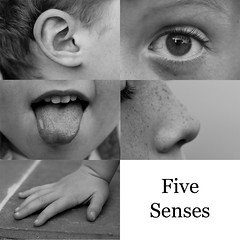Myers Psychology for AP Unit 7 (Memory & Language) Flashcards
Terms : Hide Images [1]
| 12377623699 | memory | The persistence of learning over time through the storage and retrieval of information. |  | 0 |
| 12377623700 | encoding | The processing of information into the memory system. |  | 1 |
| 12377623701 | storage | The retention of encoded information over time. |  | 2 |
| 12377623702 | retrieval | The process of getting information out of memory storage. |  | 3 |
| 12377623703 | sensory memory | The immediate, very brief recording of sensory information in the memory system. |  | 4 |
| 12377623704 | short-term memory | Activated memory that holds a few items briefly before the information is stored or forgotten. |  | 5 |
| 12377623705 | long-term memory | The relatively permanent and limitless storehouse of the memory system, including : knowledge, skills, and experiences. |  | 6 |
| 12377623706 | working memory | A newer understanding of short-term memory that focuses on conscious, active processing of incoming auditory and visual-spatial information, and of information retrieved from long-term memory. |  | 7 |
| 12377623707 | parallel processing | The processing of many aspects of a problem simultaneously; the brain's natural mode of information processing for many functions. |  | 8 |
| 12377623708 | automatic processing | Unconscious encoding of incidental information, such as space, time, and frequency, and of well-learned information. |  | 9 |
| 12377623709 | effortful processing | Encoding that requires attention and conscious effort. |  | 10 |
| 12377623710 | rehearsal | The conscious repetition of information, either to maintain it in consciousness or to encode it for storage. |  | 11 |
| 12377623711 | spacing effect | The tendency for distributed study or practice to yield better long-term retention than is achieved through massed study or practice. |  | 12 |
| 12377623712 | serial position effect | Our tendency to recall best the last and first items in a list. |  | 13 |
| 12377623713 | visual encoding | The encoding of picture images. |  | 14 |
| 12377623714 | acoustic encoding | The encoding of sound, especially the sound of words. |  | 15 |
| 12377623715 | semantic encoding | The encoding of meaning, including the meaning of words. |  | 16 |
| 12377623716 | imagery | Mental pictures; a powerful aid to effortful processing. |  | 17 |
| 12377623717 | mnemonics | Memory aids, especially those techniques that use vivid imagery and organizational devices. |  | 18 |
| 12377623718 | chunking | Organizing items into familiar, manageable units; often occurs automatically. | 19 | |
| 12377623719 | iconic memory | A momentary sensory memory of visual stimuli; a photographic or picture-image memory lasting no more than a few tenths of a second. |  | 20 |
| 12377623720 | echoic memory | A momentary sensory memory of auditory stimuli; if attention is elsewhere, sounds and words can still be recalled within 3 or 4 seconds. |  | 21 |
| 12377623721 | long-term potentiation (LTP) | An increase in a synapse's firing potential after brief, rapid stimulation. |  | 22 |
| 12377623722 | amnesia | The loss of memory. |  | 23 |
| 12377623723 | implicit memory | Retention independent of conscious recollection (nondeclarartive or procedural memory). |  | 24 |
| 12377623724 | explicit memory | Memory of facts and experiences that one can consciously know and "declare" (declarative memory). |  | 25 |
| 12377623725 | hippocampus | A neural center that is located in the limbic system; helps process explicit memories for storage. |  | 26 |
| 12377623726 | recall | A measure of memory in which the person must retrieve information learned earlier. |  | 27 |
| 12377623727 | recognition | A measure of memory in which the person need only identify items previously learned. |  | 28 |
| 12377623728 | relearning | A measure of memory that assesses the amount of time saved when learning material for a second time. |  | 29 |
| 12377623729 | priming | The activation, often unconsciously, of particular associations in memory. |  | 30 |
| 12377623730 | déjà vu | That eerie sense that "I've experienced this before." Cues from the current situation may subconsciously trigger the retrieval of an earlier experience. |  | 31 |
| 12377623731 | mood-congruent memory | The tendency to recall experiences that are consistent with one's current good or bad mood. |  | 32 |
| 12377623732 | proactive interference | The disruptive effect of prior learning on the recall of new information. |  | 33 |
| 12377623733 | retroactive interference | The disruptive effect of new learning on the recall of old information. |  | 34 |
| 12377623734 | repression | In psychoanalytic theory, the basic defense mechanism that banishes from consciousness anxiety-arousing thoughts, feelings, and memories. |  | 35 |
| 12377623735 | misinformation effect | Incorporating misleading information into one's memory of an event. |  | 36 |
| 12377623736 | source amnesia | Attributing to the wrong source an event we have experienced, heard about, read about, or imagined (source misattribution). |  | 37 |
| 12377623737 | cognition | The mental activities associated with thinking, knowing, remembering, and communicating. |  | 38 |
| 12377623754 | language | Our spoken, written, or signed words and the ways we combine them to communicate meaning. |  | 39 |
| 12377623755 | phoneme | In language, the smallest distinctive sound unit. |  | 40 |
| 12377623756 | morpheme | In a language, the smallest unit that carries meaning; may be a word or part of a word. |  | 41 |
| 12377623757 | grammar | In a language, a system of rules that enables us to communicate with and understand others. |  | 42 |
| 12377623758 | semamtics | The set of rules by which we derive meaning from morphed, words, and sentences in a given language; the study of meaning. |  | 43 |
| 12377623759 | syntax | The rules for combining words into grammatically sensible sentences in a given language. |  | 44 |
| 12377623760 | babbling stage | Beginning at about 4 months, the stage of Speech development in which the infant spontaneously utters various sounds at first unrelated to the household language. |  | 45 |
| 12377623761 | one-word stage | The stage in speech development, from about age 1 to 2, during which a child speaks mostly in single words. |  | 46 |
| 12377623762 | two-word stage | Beginning about age 2, the stage in speech development during which a child speaks mostly two-word statements. |  | 47 |
| 12377623763 | telegraphic speech | Early speech stage in which a child speaks like a telegram using mostly nouns and verbs. |  | 48 |
| 12377623764 | linguistic determinism | Whorf's hypothesis that language determines the way we think. |  | 49 |
| 12377623765 | episodic memory | the memory of autobiographical events that can be explicitly stated or conjured. It is the collection of past personal experiences that occurred at a particular time and place. |  | 50 |
| 12377623766 | flashbulb memory | a highly detailed, exceptionally vivid 'snapshot' of the moment and circumstances in which a piece of surprising and consequential (or emotionally arousing) news was heard. |  | 51 |
